
A few days ago, while sorting out the backstage, Dr. Clove’s editorial department saw a reader’s message saying that the baby had diarrhea and the hospital had prescribed gentamicin. Can it be eaten?

Hearing the name of the medicine, I immediately remembered the Spring Festival Gala, which was very popular for a while.
Jiang Xintian, the sign language host in < < Thousand Hands Guanyin > >, suffered from pneumonia when he was 3 months old and was injected with gentamicin for treatment, resulting in toxic deafness.
Gentamicin is highly toxic and easy to cause deafness by one needle.
Every year, about 30,000 children in our country suffer from toxic deafness due to improper drug use, of which more than 95% are aminoglycoside drugs.
Long-term use and excessive dosage have the risk of deafness. For Chinese with high deafness gene defects, aminoglycoside drugs have a higher risk of deafness.
Gentamicin is the most commonly used aminoglycoside antibiotic.
Searching the backstage of clove mother, I found that there were quite a few children who had been treated with gentamicin…
Not only diarrhea, gastroenteritis and upper respiratory tract infection have the shadow of gentamicin.



This kind of drug is as harmful as a tiger. It should have been eliminated by pediatric drugs long ago and is still being abused by various kinds of drugs.
Gentamicin has deafness toxicity and has been banned from injection.
Gentamicin is a kind of antibiotic with strong efficacy against Gram-negative bacteria and has serious ototoxicity and nephrotoxicity.
Poisoning symptoms of ototoxicity include vertigo, tinnitus, deafness, etc.
Nephrotoxicity is manifested as kidney injury or acute renal failure, and serious death due to uremia.
In May 1999, the Ministry of Health issued the “Guidelines for Clinical Use of Commonly Used Ototoxic Drugs”, stipulating that aminoglycoside antibiotics are prohibited for children under 6 years old, pregnant women and the elderly over 65 years old.
Gentamicin instructions also wrote: This drug is not suitable for subcutaneous injection, because it has respiratory inhibition effect, this drug cannot be injected intravenously, and children are forbidden.
Thousands of children have been deaf as a result of this [one needle]. In recent years, there have still been cases of deafness or even death of children caused by illegal use.

Not only is injection unsafe, but oral administration and atomization are also risky.
Among the drugs used by children, oral drugs are most commonly abused to treat diarrhea and enteritis.
Ordinary diarrhea does not use antibiotics. Even if enteritis is definitely caused by bacterial infection, gentamicin is not the only antibiotic to choose from. Penicillin or cephalosporin drugs, which are relatively safer, can be selected for treatment.
In 2006, CCTV’s Weekly Quality Report reported a real case: an 8-month-old boy was diagnosed with antibiotic deafness by experts in Beijing.
Unfortunately, the little boy’s four-year-old brother was deaf two years ago due to the same disease and the same antibiotic.
Both children took gentamicin orally.
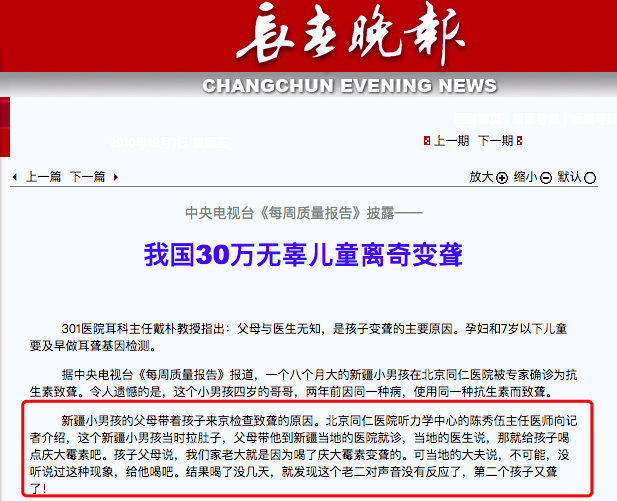
The abuse of gentamicin in children’s atomization is also very common.
At present, there is no atomized gentamicin in our country. The atomized dosage forms are all injection forms and are not within the scope of use in the drug instructions.
Atomization itself does not require antibiotics, so gentamicin is not recommended.
Moreover, the atomization inhalation of gentamicin is not marked on the instruction manual, which not only has no definite curative effect, but also lacks standardization. The dosage of the drug is difficult to grasp and there are risks.
In 2016, < < Expert Consensus on Application of Atomization Inhalation Therapy in Respiratory Diseases > >, gentamicin injection atomization was identified as nonstandard usage.
There has been a legal program report that a 3-year-old child suddenly lost his hearing, which was suspected to be related to gentamicin atomization.
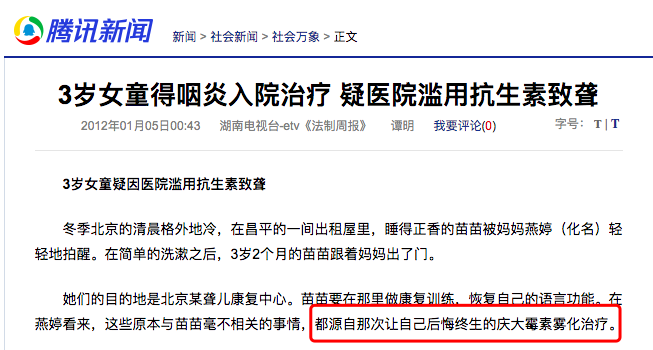
Many people mistakenly believe that gentamicin injection is risky, but research shows that gentamicin may produce vestibular toxicity (toxic deafness) at any dose, any treatment plan and any serum level.
Remember these four words, don’t use them for children unless you have to.
Gentamicin has such great toxic and side effects on children, why is it still abused in various ways?
On the one hand, many parents do not know about gentamicin medication and blindly use it for their children.

On the forum of Clove Garden, many doctors said that the use of gentamicin was [a necessity] and many primary hospitals really had no medicine available.
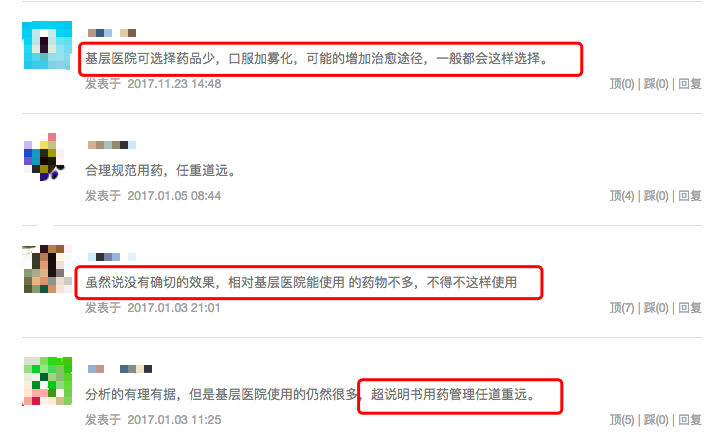
In addition, in many guidelines and teaching materials guiding clinical medication, the labeling of gentamicin is not consistent, resulting in many [blind spots] in clinical medication.
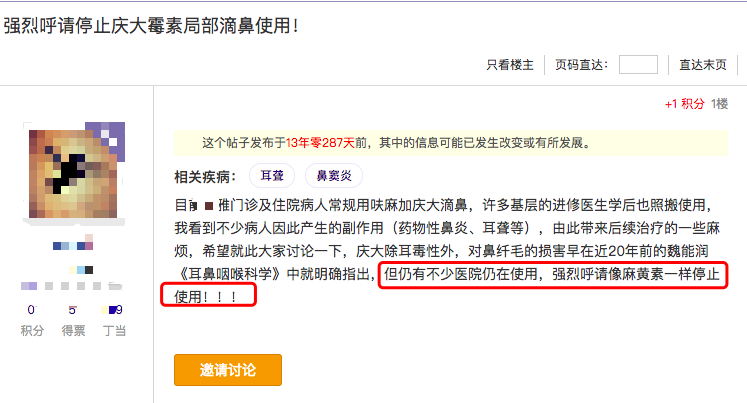
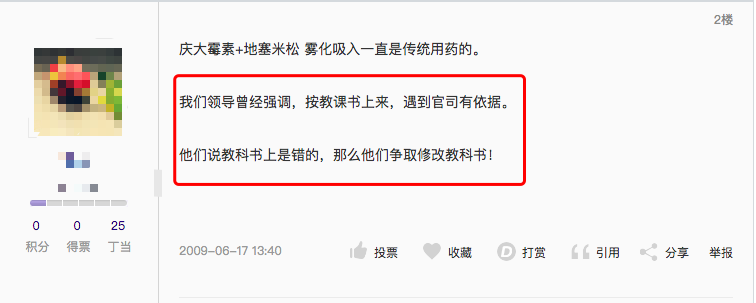
Some people say that any medicine has side effects, as does gentamicin.
Some people also said: I used it when I was a child (my children used it), no problem.
The probability of side effects of gentamicin may be a few in 1,000, but it is 100% on children.
If there is a safer medication option, it is really not recommended for children unless it is absolutely necessary.
